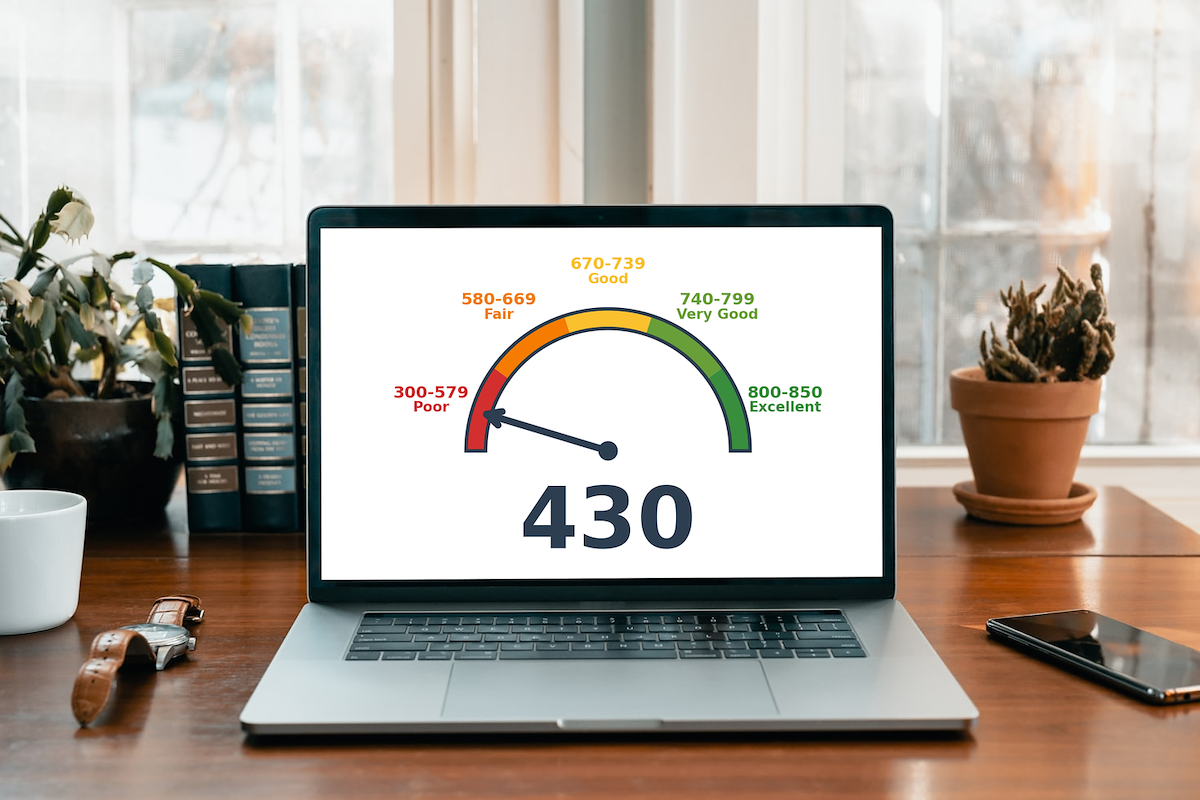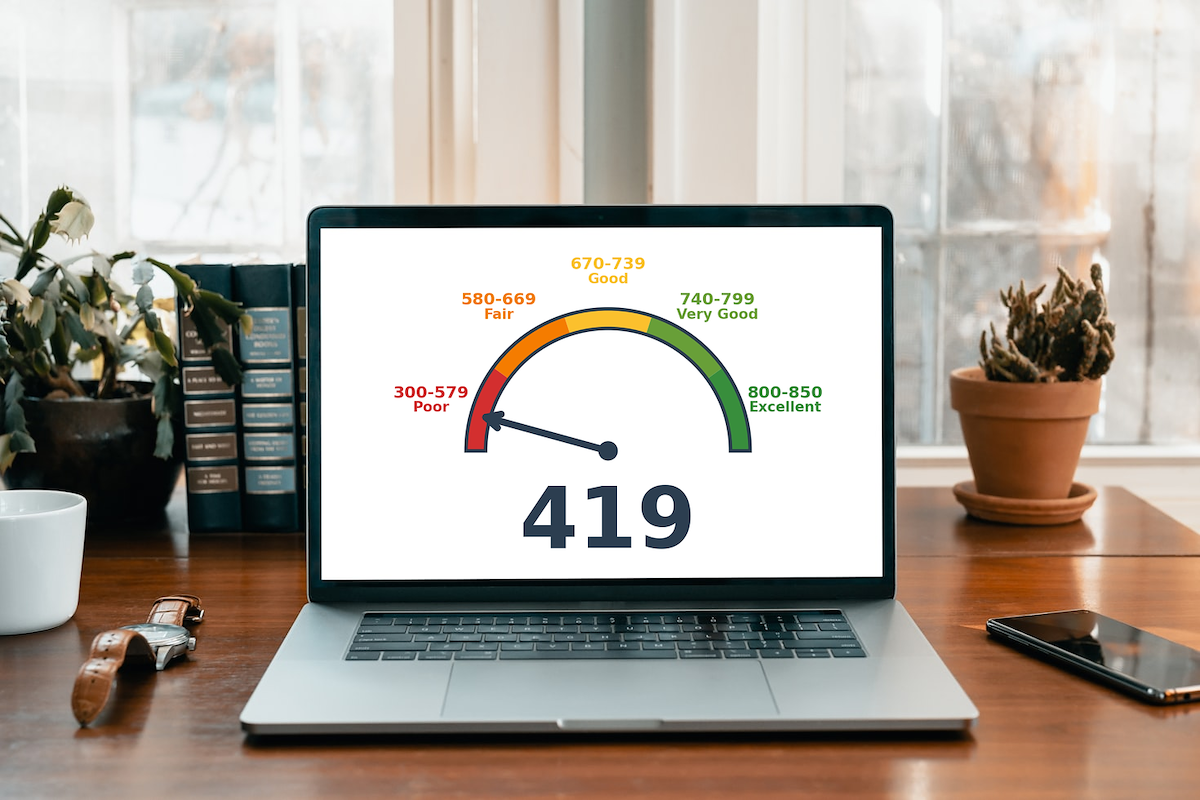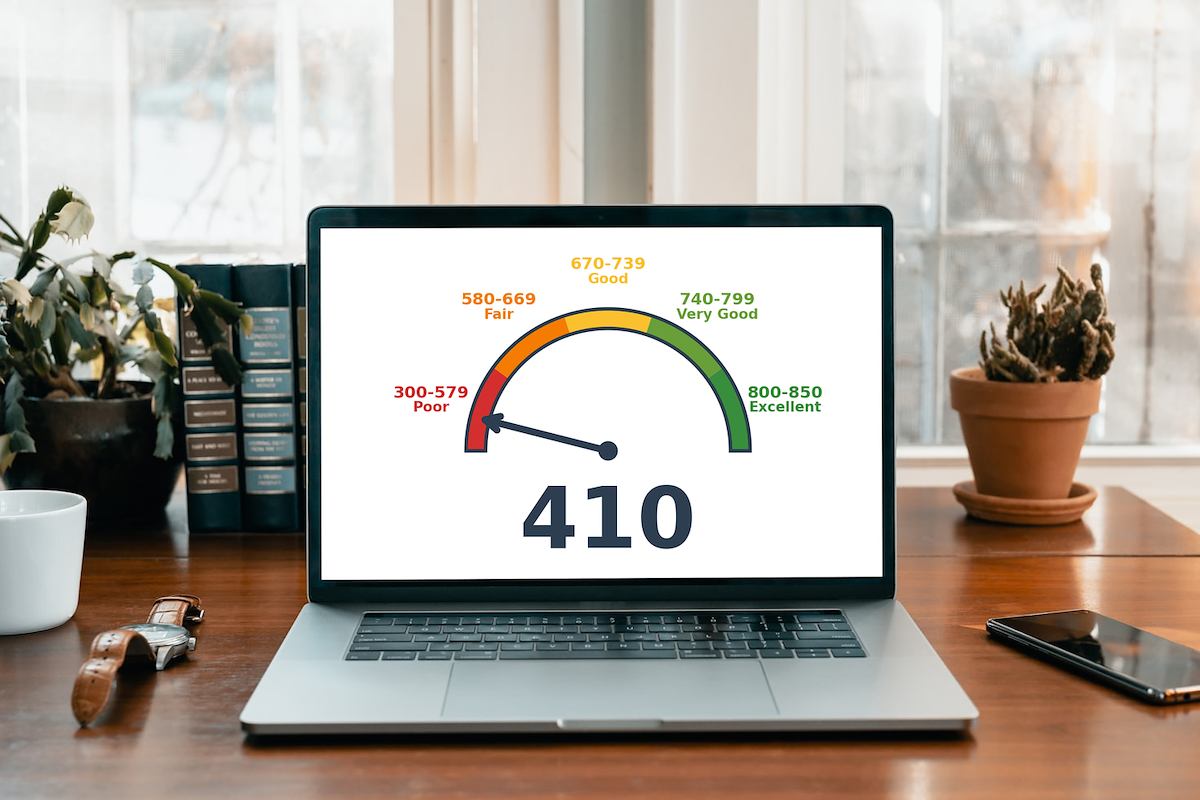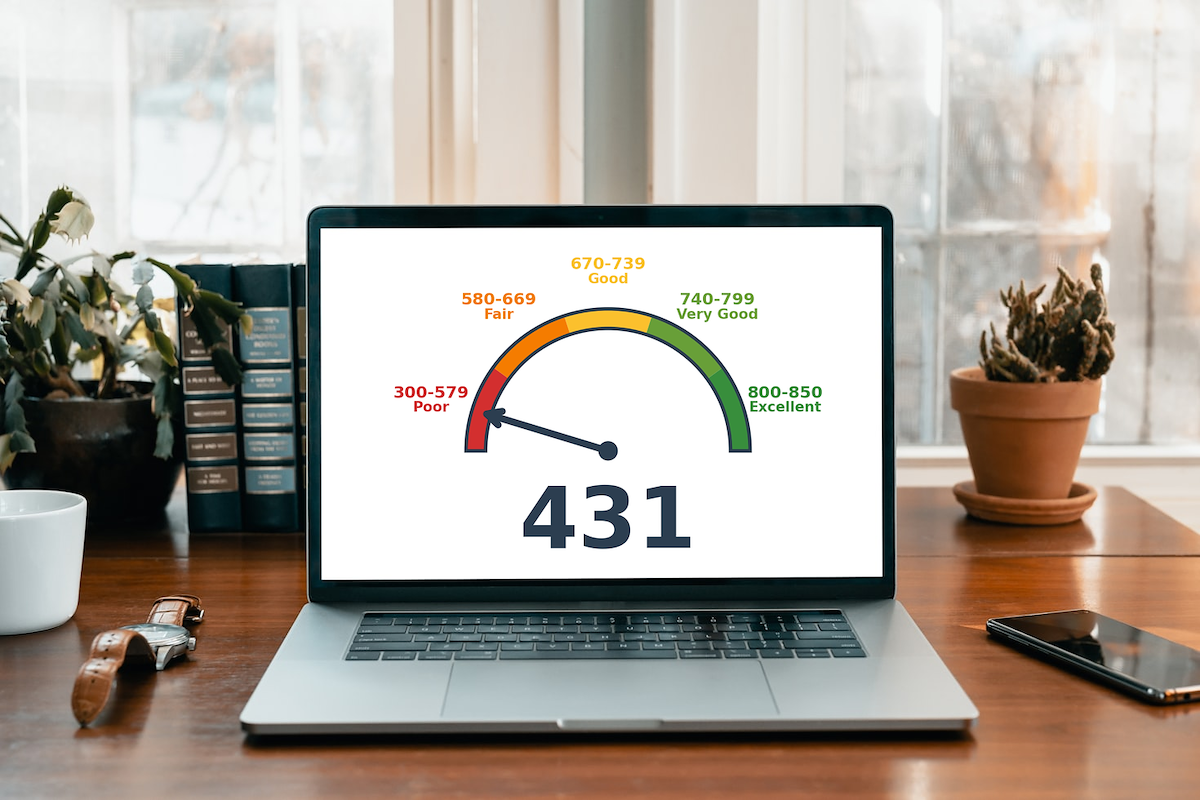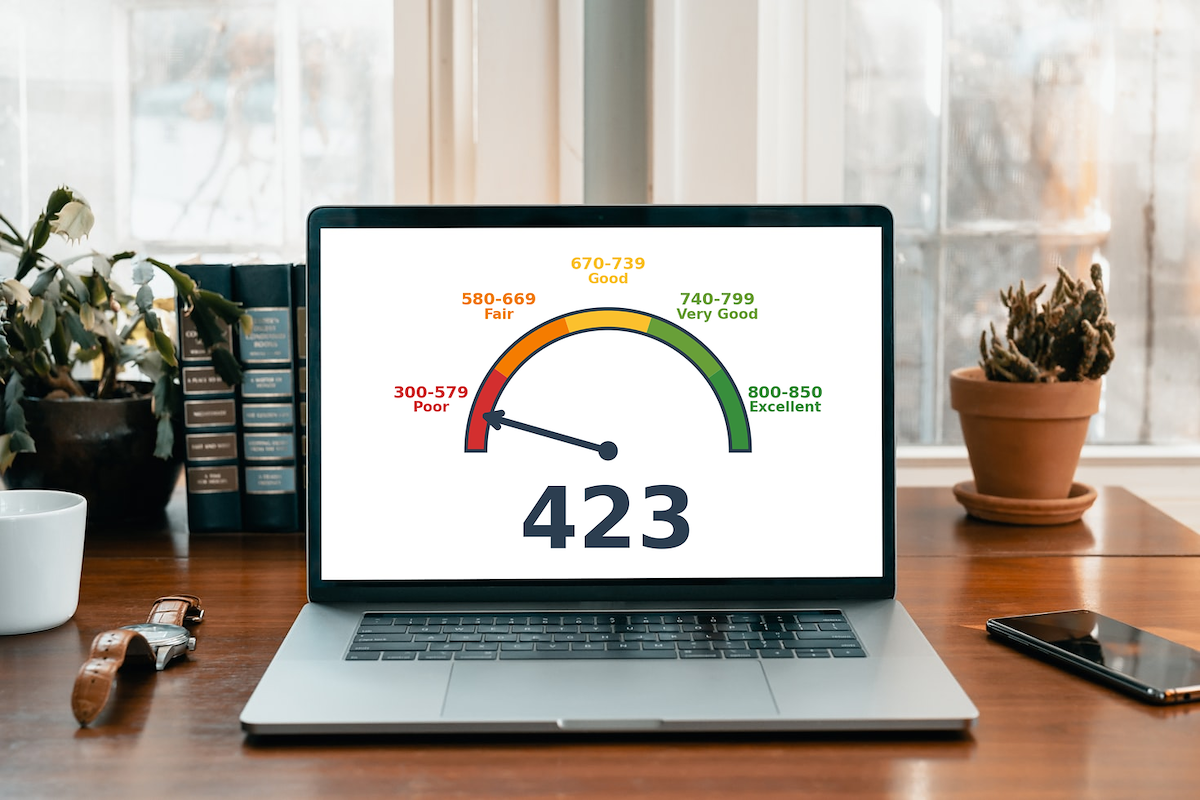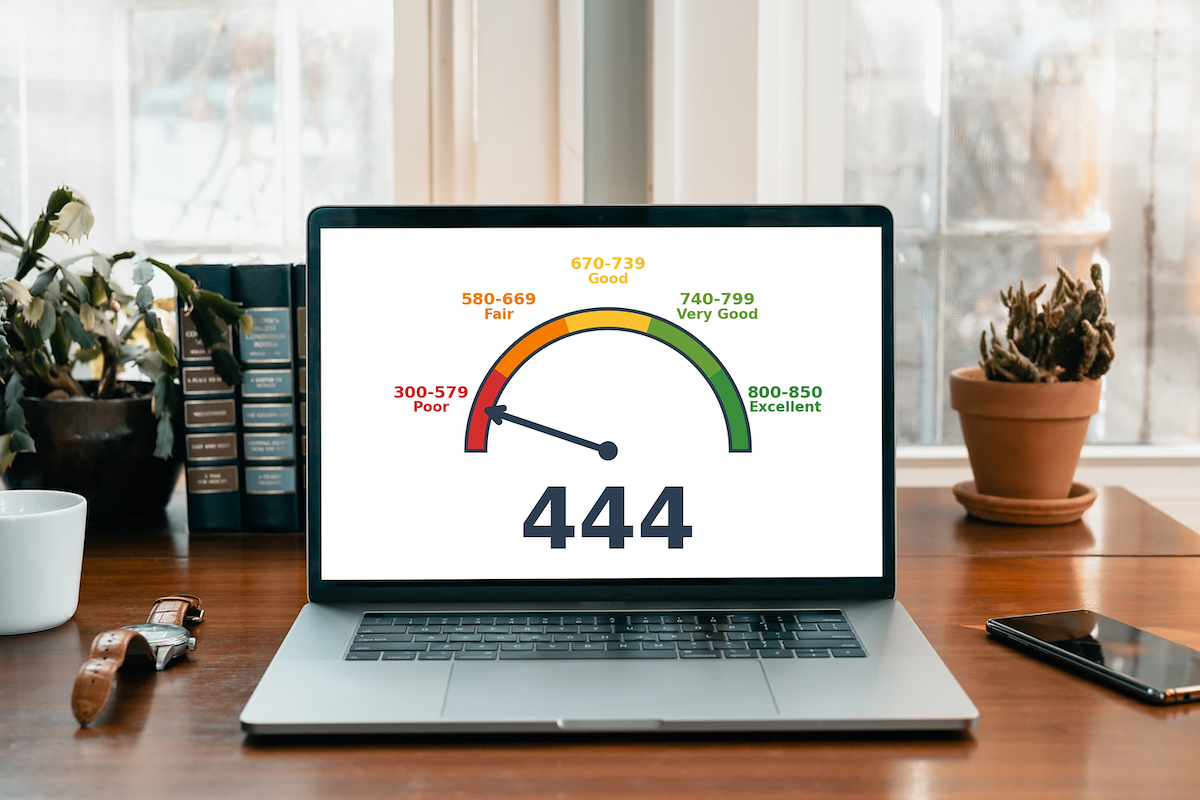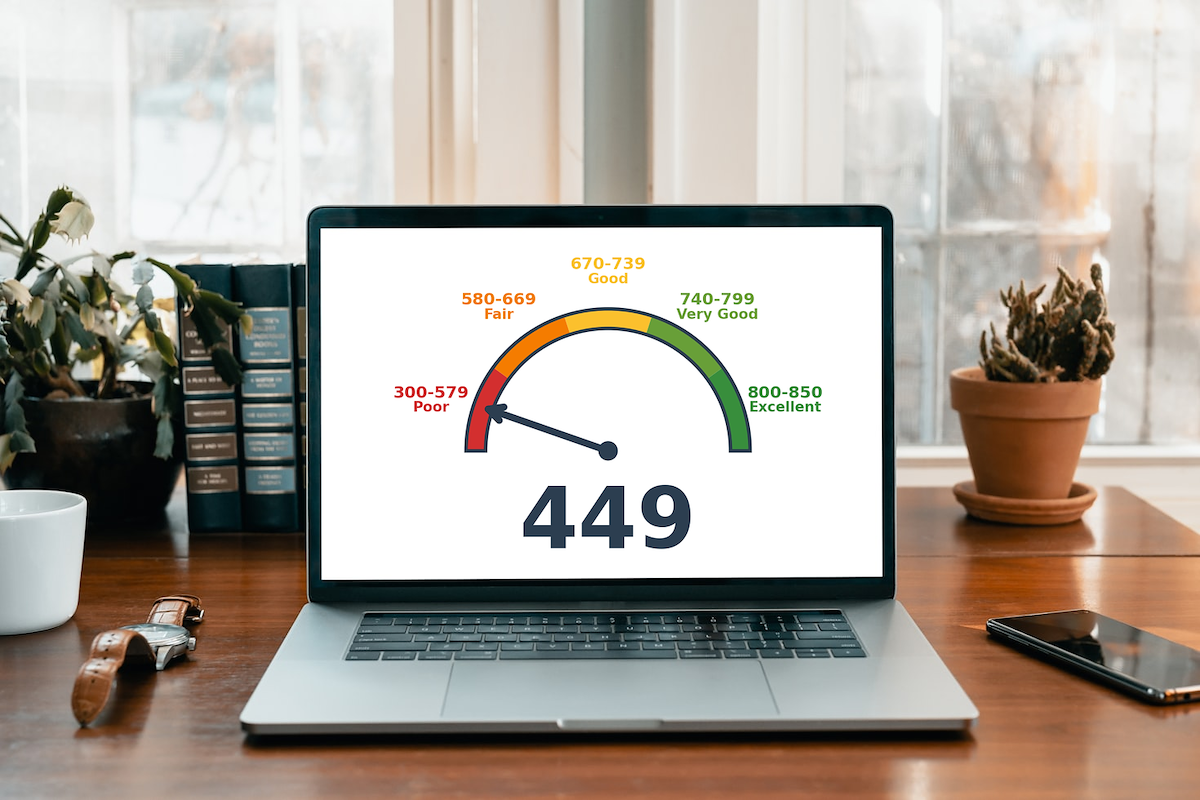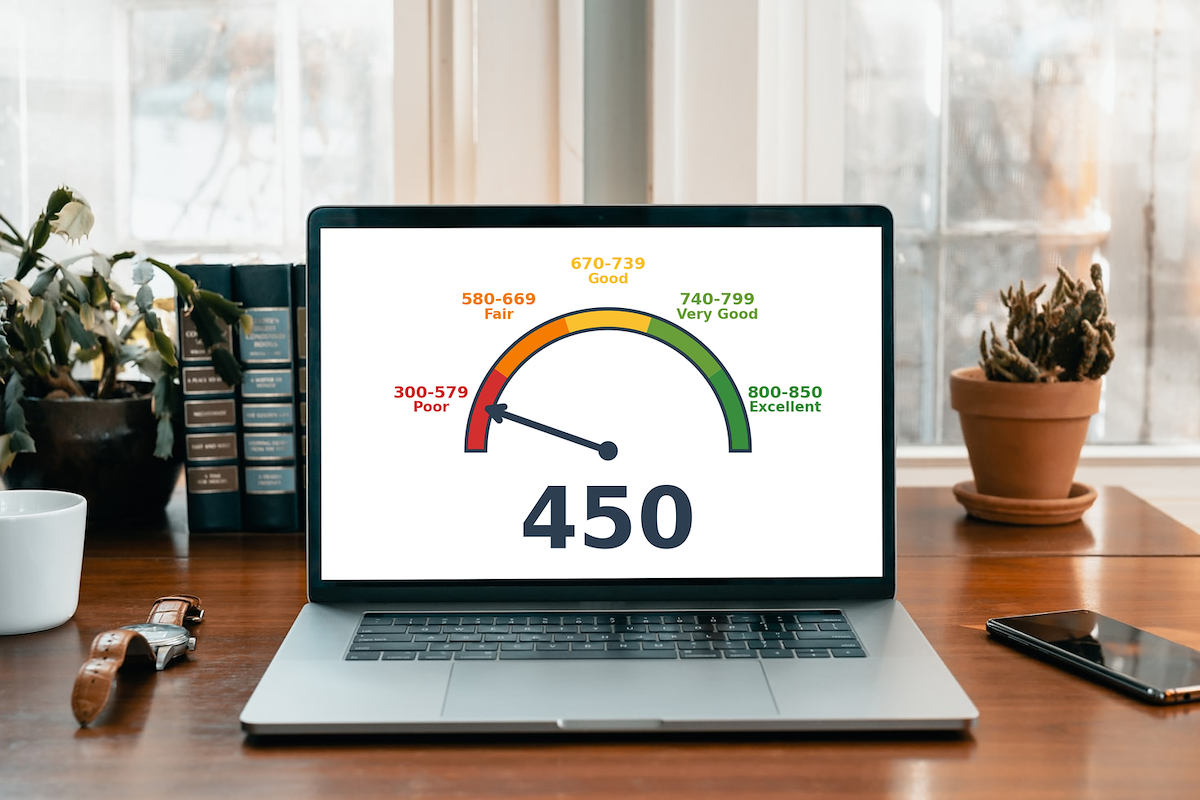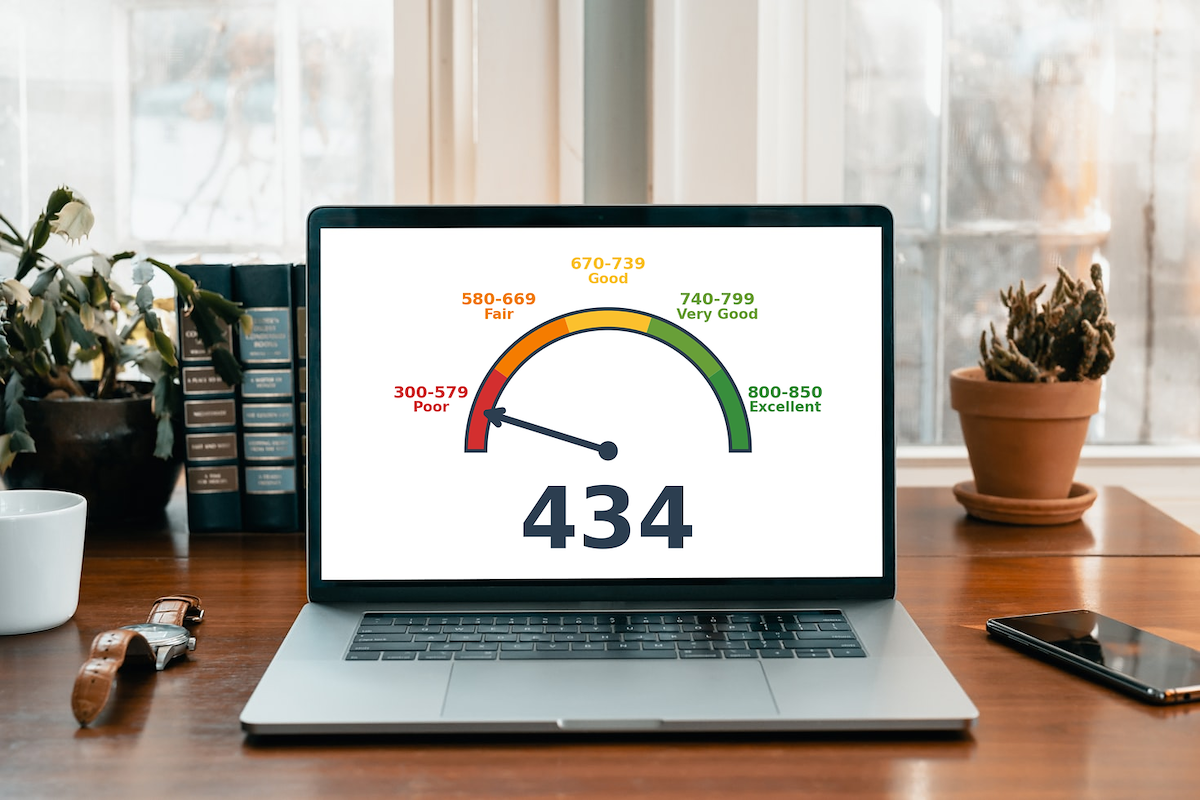
Kudos has partnered with CardRatings and Red Ventures for our coverage of credit card products. Kudos, CardRatings, and Red Ventures may receive a commission from card issuers. Kudos may receive commission from card issuers. Some of the card offers that appear on Kudos are from advertisers and may impact how and where card products appear on the site. Kudos tries to include as many card companies and offers as we are aware of, including offers from issuers that don't pay us, but we may not cover all card companies or all available card offers. You don't have to use our links, but we're grateful when you do!
440 Credit score: What You Need to Know in 2025
July 1, 2025

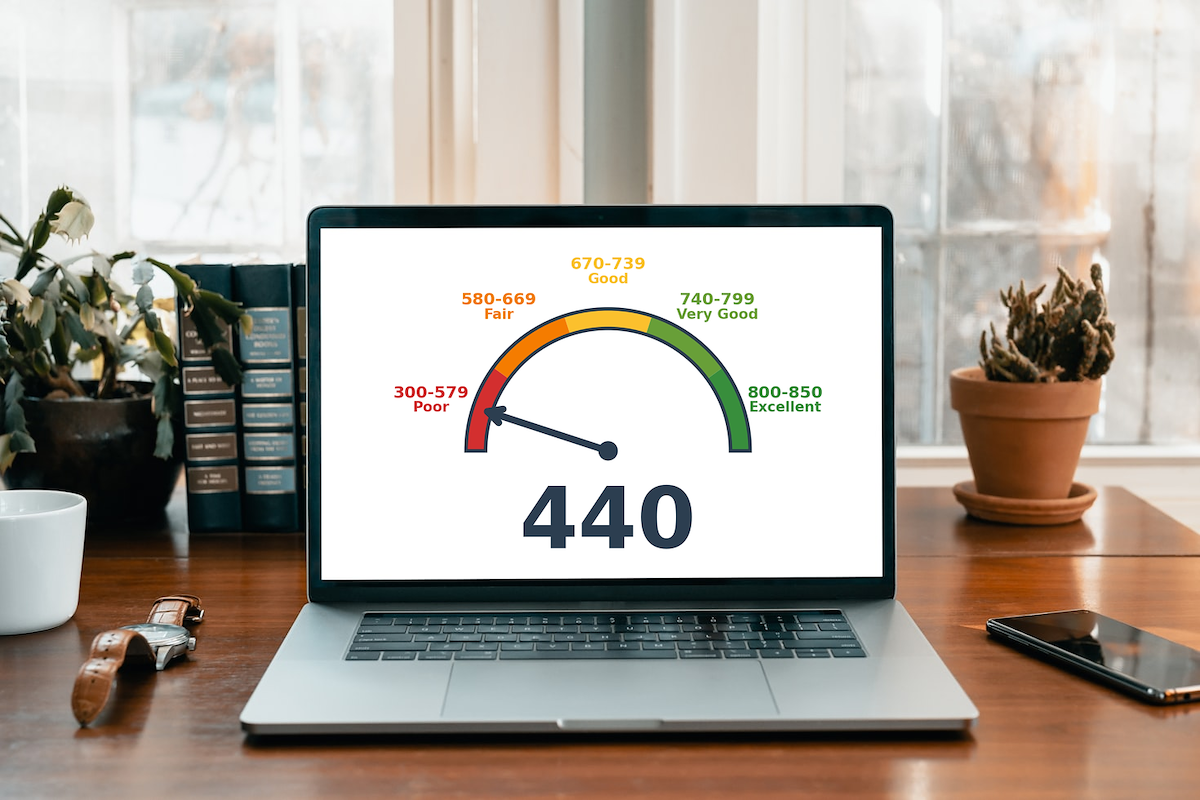
TL;DR
A 440 credit score offers a significant opportunity for growth and is a foundation you can actively build upon. This score falls into the 'Poor' FICO score range, providing a clear benchmark for your journey toward a stronger financial profile.
What Does a 440 Credit Score Mean?
A credit score of 440 falls into the "poor" range on the FICO scale, which spans from 300 to 850. This score is well below the national average and signals a history of significant financial difficulties to potential lenders. It suggests a very high level of risk, indicating past struggles with managing debt and making timely payments.
Financially, a 440 score creates considerable hurdles. You'll likely face rejections for new credit cards, loans, and even apartment rentals. Any approved credit will almost certainly come with steep interest rates and unfavorable terms. While this position is challenging, it's not permanent. Understanding where you stand is the crucial first step toward building a stronger financial future.
Who Has a 440 Credit Score?
Data shows a clear trend of credit scores increasing with age. Here’s a look at the average FICO score by generation for 2023:
- Generation Z (ages 18-26): 680
- Millennials (ages 27-42): 690
- Generation X (ages 43-58): 709
- Baby Boomers (ages 59-77): 745
- Silent Generation (ages 78+): 760
Credit Cards With a 440 Credit Score
A credit score of 440 is considered very poor, signaling to lenders that you are a high-risk borrower. This makes it extremely challenging to get approved for most traditional, unsecured credit cards. Your most viable options will likely be limited to secured credit cards or cards designed for bad credit, which typically come with higher fees and interest rates.
Kudos can help you find the right credit card for your situation with its AI-powered tools, which provide personalized recommendations from a database of nearly 3,000 cards. These tools consider your unique financial circumstances by matching you with cards based on your preferences and providing insights to help you make an informed decision.
Auto Loans and a 440 Credit Score
A 440 credit score places you in the deep subprime category, which can make securing an auto loan challenging. Lenders view this score as high-risk, resulting in significantly higher interest rates compared to borrowers with better credit.
According to a 2025 market analysis, here are the average auto loan interest rates broken down by credit score:
- Super-prime (781-850): 5.25% for new cars and 7.13% for used cars
- Prime (661-780): 6.87% for new cars and 9.36% for used cars
- Non-prime (601-660): 9.83% for new cars and 13.92% for used cars
- Subprime (501-600): 13.18% for new cars and 18.86% for used cars
- Deep subprime (300-500): 15.77% for new cars and 21.55% for used cars
Mortgages at a 440 Credit Score
With a 440 credit score, your options for a home loan are extremely limited. While most lenders will not approve a mortgage for a score this low, it is not entirely impossible. According to mortgage requirements, the most common path for borrowers with poor credit is an FHA loan, which can accept scores as low as 500 with a 10% down payment. Finding a lender willing to underwrite a loan for a 440 score is rare and would require significant financial scrutiny.
If you do find a lender, expect the least favorable terms. Your interest rate will be significantly higher than average, and you'll face a mandatory down payment of at least 10% for an FHA loan. Lenders will also look beyond your score at factors like your debt-to-income ratio, income stability, and cash reserves to offset the high risk associated with a low credit score.
What's in a Credit Score?
Understanding your credit score can feel like trying to solve a complex puzzle, as it's a blend of several key financial habits. The most common factors that determine your score include:
- Your payment history tracks whether you have paid past credit accounts on time.
- Credit utilization is the percentage of your available credit that you are currently using.
- The length of your credit history considers the age of your oldest account and the average age of all your accounts.
- Credit mix refers to the variety of credit products you have, such as credit cards, retail accounts, and loans.
- New credit inquiries and recently opened accounts can also temporarily impact your score.
How to Improve Your 440 Credit Score
Having a 440 credit score can feel limiting, but it is absolutely possible to improve your financial standing. With consistent, positive behavior and proven methods, you can boost your score and build a healthier credit profile over time.
- Monitor your credit reports. This allows you to spot and dispute any inaccuracies or fraudulent activity that could be unfairly dragging your score down. Regularly checking your reports also helps you track your progress as you work to build better credit.
- Set up automatic bill payments. Your payment history is the single most important factor in your score, so ensuring every bill is paid on time is critical. Automating payments prevents missed deadlines, which helps build the positive history needed to recover from a very poor score.
- Lower your credit utilization. This ratio compares your card balances to your credit limits, and a high ratio signals risk to lenders. Paying down your balances to get below the recommended 30% threshold shows you can manage debt responsibly.
- Apply for a secured credit card. If you have damaged credit, a secured card can be an accessible tool for rebuilding it. Since it's backed by a cash deposit, it's lower risk for lenders and allows you to demonstrate responsible use that gets reported to credit bureaus.
Using a tool like the Kudos browser extension can help you manage your cards and make smarter credit decisions on your journey to a better score.

Supercharge Your Credit Cards
Experience smarter spending with Kudos and unlock more from your credit cards. Earn $20.00 when you sign up for Kudos with "GET20" and make an eligible Kudos Boost purchase.
Editorial Disclosure: Opinions expressed here are those of Kudos alone, not those of any bank, credit card issuer, hotel, airline, or other entity. This content has not been reviewed, approved or otherwise endorsed by any of the entities included within the post.


















